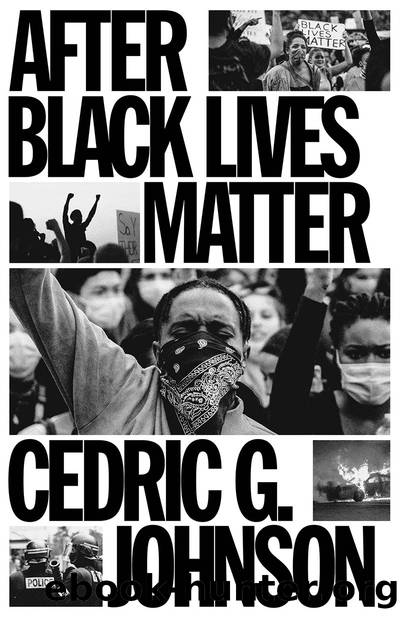After Black Lives Matter by Cedric Johnson

Author:Cedric Johnson
Language: eng
Format: epub
Publisher: Verso Books
5
Whose Streets?
Building the Just City in Rahm
Emanuelâs Chicago and Beyond
Over two days in late October 2018, hundreds of Chicagoans filed into the Dirksen Courthouse to offer input on a draft consent decree that would guide reform of the Chicago Police Department (CPD). Coming in the wake of an Obama Department of Justice (DOJ) investigation that found patterns of systemic abuse and racial discrimination by Chicago police, the decree was the result of several months of negotiations between the CPD, Illinois attorney general Lisa Madigan, Chicago mayor Rahm Emanuel and policing experts. In advance of the public hearings, now former Trump administration attorney general Jeff Sessions condemned the consent decree as âundemocratic,â an insult to police and âa colossal mistake.â1 Some police officers and police union representatives who participated in the hearing echoed his sentiment. The vast majority of those Chicagoans who testified, however, spoke about their experiences of police abuse, and the deaths of loved ones, with many recalling harrowing confrontations and life-altering events as they fought back tears.2
As an enforceable plan of reform, the decree was designed to improve use-of-force practices and reporting procedures, increase required crisis intervention training, destigmatize officer-wellness programs, expand the suicide prevention initiative, ensure greater transparency regarding complaints against officers, encourage community policing and improve diversity in hiring practices, among other things. With regard to use of force, the decree called for enhanced de-escalation tactics, prohibited the use of tasers on fleeing suspects and discouraged their use in schools, prohibited officers from firing on moving cars and required that police administer life-saving aid to wounded suspects. To improve transparency, the decree would allow the public to track civilian complaints online by 2020. The formal DOJ investigation and the talks that produced the consent decree were the result of years of litigation, organizing and protests by aggrieved families, civil liberties advocates and criminal justice reformersâfrom the 2000 moratorium on capital punishment enacted by Illinois governor George Ryan; the landmark settlements won by the victims of Jon Burge, the police commander who presided over the serial torture of black suspects; the public outrage over the CPDâs Homan Square black site; to the more recent killings of black civilians such as Rekia Boyd, Quintonio LeGrier and Bettie Jones, and Laquan McDonald, among too many others. After activists secured the release of the suppressed dashcam footage of McDonaldâs killing, mass demonstrations shut down the Magnificent Mile, the cityâs premier downtown shopping corridor, provoked the firing of police superintendent Garry McCarthy, and set the stage for the indictment and conviction of CPD officer Jason Van Dyke on second-degree murder and sixteen counts of aggravated battery with a firearm, one count for each bullet he fired into McDonald. The fact that Chicago produced a consent decree was a clear reflection of the growing power of local anti-policing and criminal justice reform forces, but it also revealed the limits of executive-managerial remedy.
As a means of reform, a consent decree does not rectify the deeper root causes of policeâcivilian conflicts in Chicago, or for that matter anywhere else in the United States.
Download
This site does not store any files on its server. We only index and link to content provided by other sites. Please contact the content providers to delete copyright contents if any and email us, we'll remove relevant links or contents immediately.
Nudge - Improving Decisions about Health, Wealth, and Happiness by Thaler Sunstein(7707)
The Fire Next Time by James Baldwin(5446)
iGen by Jean M. Twenge(5416)
Adulting by Kelly Williams Brown(4574)
The Sports Rules Book by Human Kinetics(4388)
The Hacking of the American Mind by Robert H. Lustig(4383)
The Ethical Slut by Janet W. Hardy(4253)
Captivate by Vanessa Van Edwards(3839)
Mummy Knew by Lisa James(3693)
In a Sunburned Country by Bill Bryson(3542)
The Worm at the Core by Sheldon Solomon(3487)
Ants Among Elephants by Sujatha Gidla(3467)
The 48 laws of power by Robert Greene & Joost Elffers(3291)
Suicide: A Study in Sociology by Emile Durkheim(3023)
The Slow Fix: Solve Problems, Work Smarter, and Live Better In a World Addicted to Speed by Carl Honore(3009)
The Tipping Point by Malcolm Gladwell(2923)
Humans of New York by Brandon Stanton(2873)
Get What's Yours for Medicare: Maximize Your Coverage, Minimize Your Costs by Philip Moeller(2733)
Handbook of Forensic Sociology and Psychology by Stephen J. Morewitz & Mark L. Goldstein(2705)
